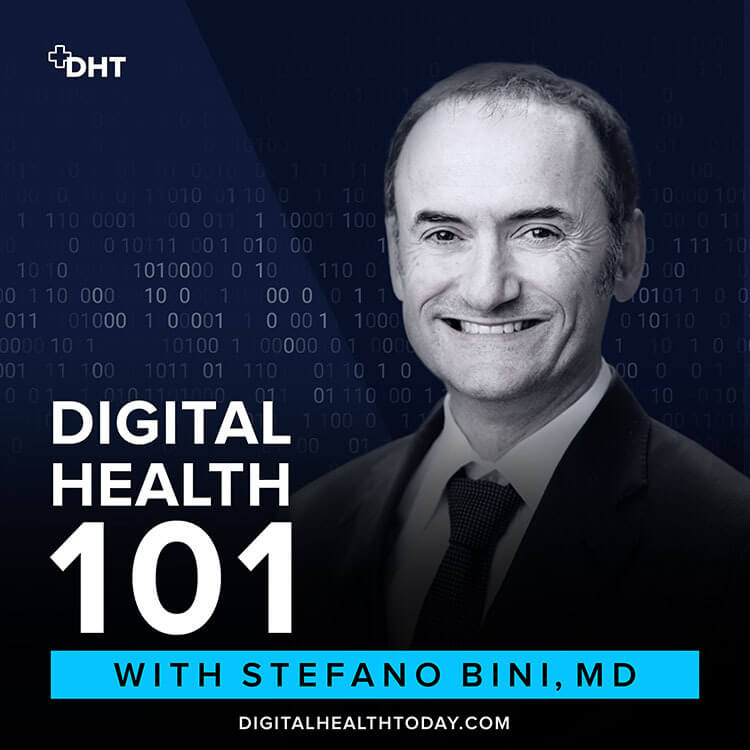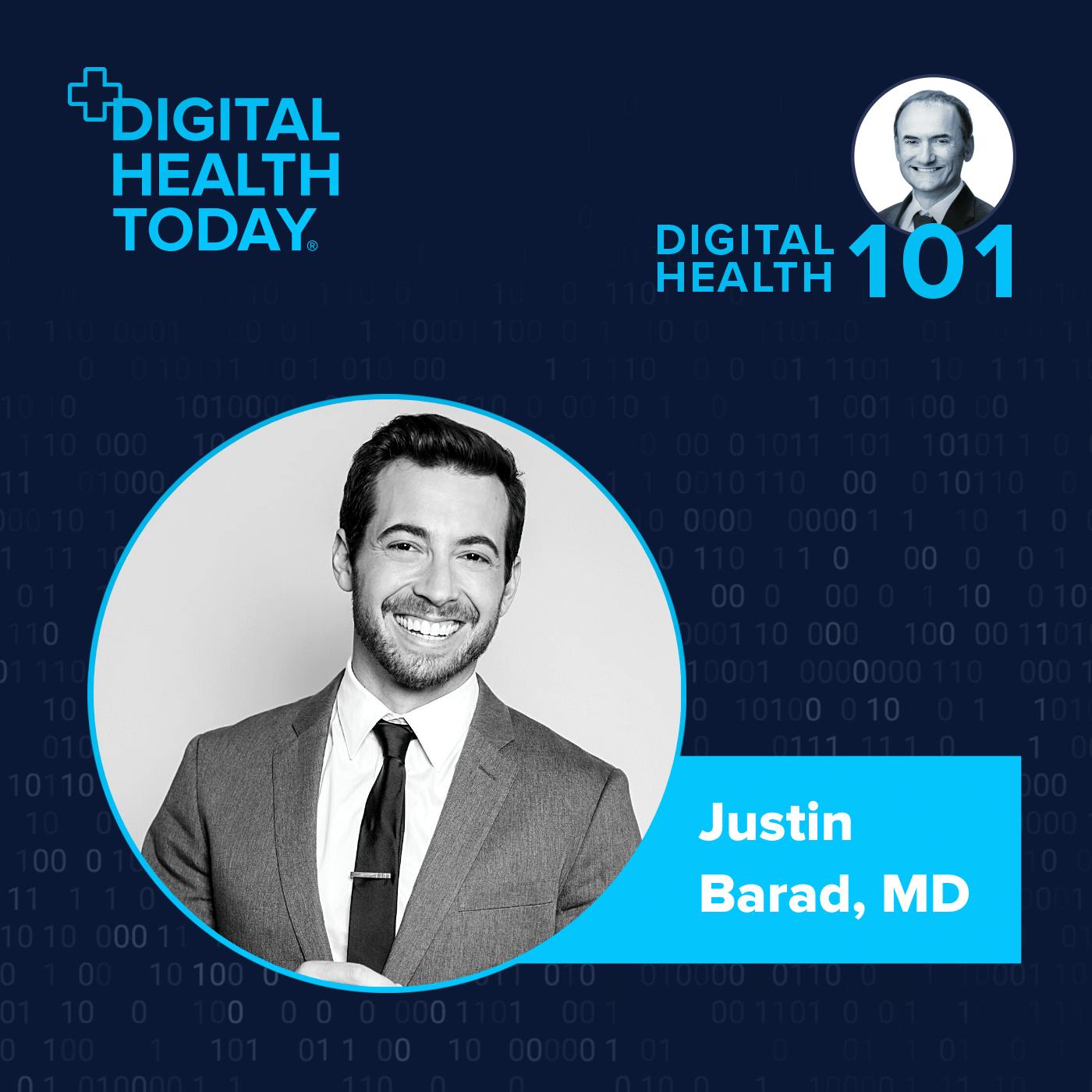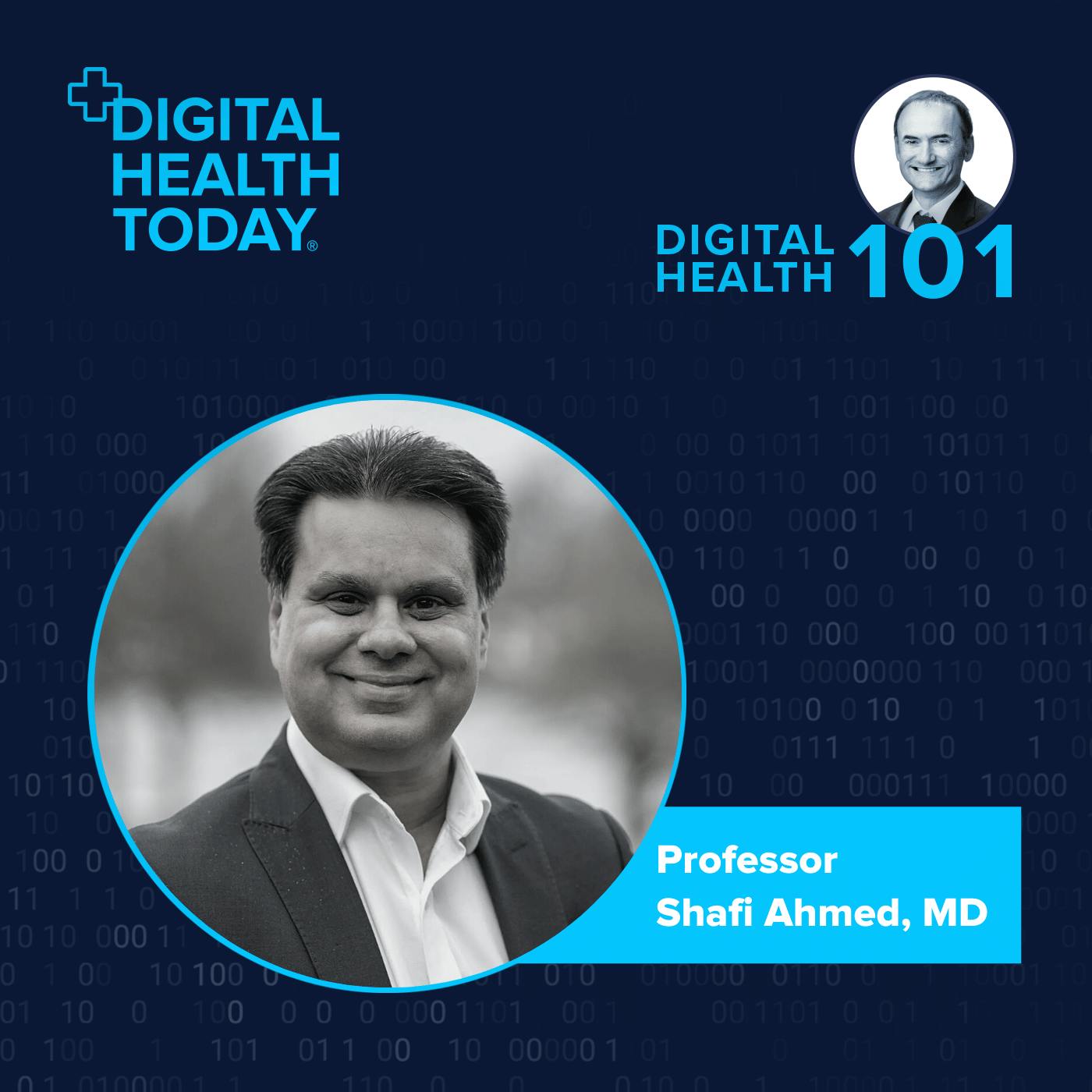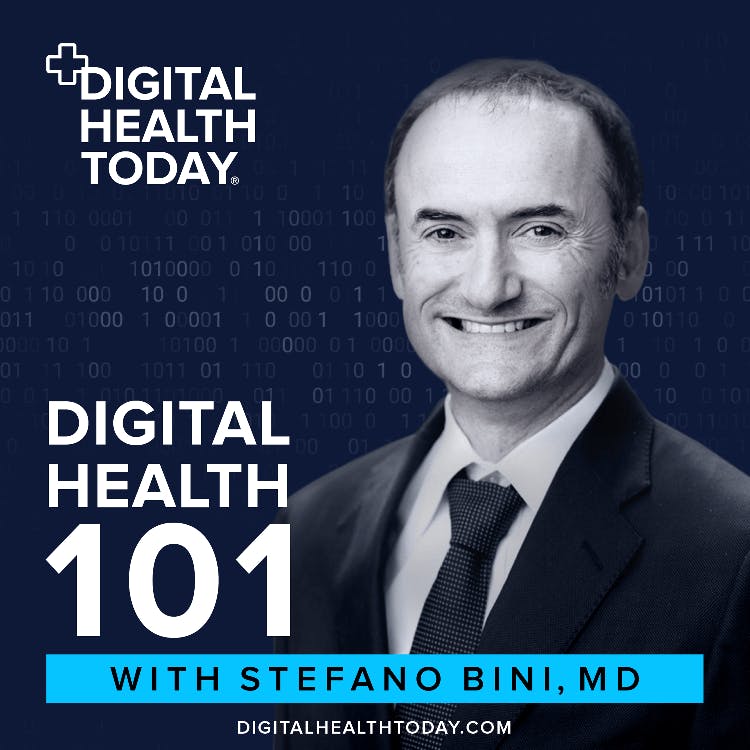Digital Health 101
Explore the pain points in healthcare, and how digital technologies can help solve them

Latest From Series
What is Virtual Reality? And how can it be used in healthcare?
In this episode we do a deep dive into virtual reality, and we are honored to feature a doctor synonymous with VR, Dr. Justin Barad.
In this interview, Justin defines virtual reality, shares some background context and history, and discusses some of the advantages of training in the VR world. He also talks about VR in healthcare, especially in surgery, pain, anxiety management, psychiatric space, and optometry space. Justin also shares his thoughts on possible areas of VR applications, how technology should be used in healthcare, and some studies showing a significant increase of skill transfer in the use of Osso VR.
Learn more about virtual reality and its impact on healthcare in this exciting episode of DH 101. Please tune in!
About Justin Barad, MD
Justin is the Co-Founder and CEO at Osso VR, a surgical training and assessment platform that teaches medical procedures in a highly realistic virtual environment. He is a board-eligible orthopedic surgeon with a Bioengineering degree from UC Berkeley and an MD from UCLA, where he graduated first in his class. He completed his residency at UCLA and his fellowship in pediatric orthopedics at Harvard and Boston Children’s Hospital.
Key Takeaways:
There's too much to learn in healthcare, and doctors cannot know it all.
There was an accelerating need for some way to train people remotely without needing to be physically together and without having access necessarily to patients, cadavers, or equipment.
The VR platform is broadly applicable.
In healthcare, it takes a village, and everything's a partnership.
Have a realistic expectation of what VR is and isn't.
Working with technology is a skill set. First, you need to have a basic understanding of how the software works.
We need to make space and provide education around technology and integrate it more.
We need to start thinking about how we can systematize creating the next generation of healthcare technologies.
Connect and Follow Dr. Justin Barad on LinkedIn, Twitter, and the Web
LinkedIn: https://www.linkedin.com/in/justinbaradmd/
Twitter: @jbhungry
Website: https://ossovr.com/
October 13, 2021
Shafi Ahmed on Democratizing Surgical Training Through Virtual Reality
In this episode, we chat with Professor Shafi Ahmed about virtual reality and its application to democratize surgical training and surgical care.
Through virtual surgeries, Dr. Ahmed is changing the medical approach to technology. Digital surgery is one of Dr. Ahmed’s main focus points. This has been something that hasn’t been around for long. He also discusses extended reality and technology specialties in the healthcare field.
Join the first episode of Digital Health 101 and discover the world-changing power of virtuality and tech in medicine!
About Shafi Ahmed
Professor Shafi Ahmed is a multi-award-winning surgeon, teacher, futurist, innovator, and entrepreneur. He is a 3x TEDx and an international keynote speaker. Prof. Ahmed is faculty at Harvard Medical School, Bart’s Medical School, Imperial College London, Queen Mary University, Bradford University, and Singularity University, where he teaches medicine, innovation, and digital transformation.
He is currently a member of the NHS Assembly advising on the long-term plan. He was previously an advisor to the Abu Dhabi Ministry of Health to help deliver innovation and digital Health and is the Vodafone UK Connected Health Ambassador.
Key Take-aways
Extended reality is a concept referring to every combined (real and virtual) environment.
Digital surgery is still an innovative strategy.
People, specifically students, get more engaged when innovative tools are used.
In VR and AI, one little piece becomes part of a more extensive structure for learning.
Technology will highlight gaps that we can’t see right now in surgery.
Guest Links and Resources:
Connect and Follow Dr. Ahmed: LinkedIn https://www.linkedin.com/in/professor-shafi-ahmed-7114a260
Follow Dr. Ahmed on Twitter: https://twitter.com/ShafiAhmed5
Know more about Dr. Ahmed on his website: https://www.professorshafiahmed.com/
October 6, 2021
Trailer: Welcome to Digital Health 101
Welcome to the Digital Health 101 podcast. On this podcast, we explore and break down the building blocks of digital health, one technology at a time.
We speak with experts to understand the fundamentals of how these technologies work.
We take complex topics and present them in simple clear terms.
We hear about the experiences of the innovators who are pushing the boundaries of technology and the clinical leaders who are putting them to use.
Throughout this series, we'll explore how these technologies impact health access and health equity.
Our goal is to keep anyone working in the healthcare space informed about the latest technologies, how they work and how they can be put to use whether that's on the patient's wrist, at the bedside or in the surgical suite.
Follow this podcast on your favorite podcast player and sign up for our newsletter at Digitalhealthtoday.com, and thanks for joining us on the Digital Health 101 podcast.
September 29, 2021
Newer
Showing 15 of 15
About Digital Health 101
This podcast dives into the organizational and structural requirements for successful transformation to a new health paradigm. Join Stefano Bini, MD and his guests as they explore the pain points in healthcare, and how digital technologies can be developed and applied help solve them. Each episode considers the effectiveness and limitations of current models, as well as the potential and capability of new technology and practices that can improve or replace them.
Host
Professor Stefano Bini, MD
Dr. Bini is a Professor of Orthopedic Surgery specializing in hip and knee replacement and the Founder and Chair of the Digital Orthopaedics Conference, San Francisco (DOCSF). He consults for start ups and multinational organizations and has authored a book on change management. Dr. Bini’s appointment is with the department of Orthopedic Surgery at the University of California San Francisco (UCSF), ranked in the top 6 departments in the US. Current research interests include quantifying the impact of digital health on orthopedic care delivery, change management strategies in health care, and improving the results of total joint surgery by helping to challenge long held assumptions in surgical techniques. Stefano also serves on committees for national orthopedic organizations (AAHKS, AAOS), is an Associate Editor for Arthroplasty Today, and has delivered over 100 lectures nationally and internationally on both clinical and digital orthopedics.














